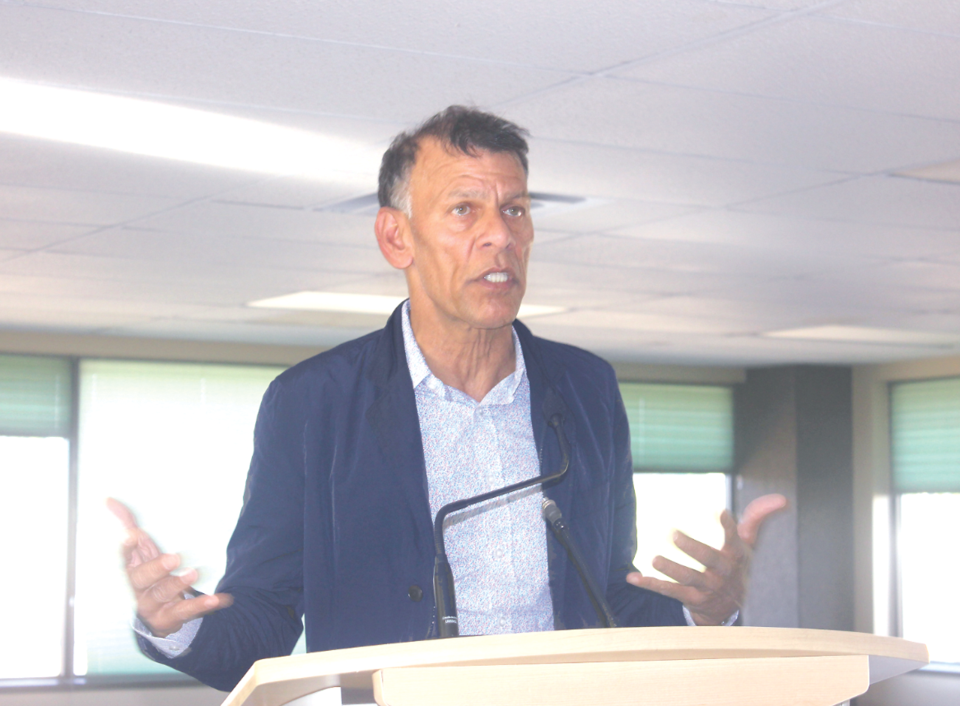One of the co-chairs for the Task Force on the Just Transition for Canadian Coal-Power Workers and Communities believes the committee is an important sounding board for affected workers and communities.
The task force was in Estevan on June 12 to meet with people in the community. Hassen Yussuff, who co-chairs the committee alongside Lois Corbett, said they heard from people who were concerned about the future of coal mining in the area.
Task force members also toured the carbon capture and storage facility at the Boundary Dam Power Station, and Yussuff came away praising the project.
They were also in Regina on June 11 and Coronach on June 13.
“There’s a combination of issues that people appear to be struggling with, and they want clear answers,” said Yussuff.
He pointed out the task force’s job is to assess what people want the federal government to do, and then file a report.
“The people have some very, very passionate positions about the use of coal and the future of coal, but at the same time, we recognize they’re worried about their families, they’re worried about their jobs and they’re worried about their community,” said Yussuff.
Without the task force, Yussuff said workers and the community wouldn’t have the opportunity to express their opinion to those who will then make recommendations to the government.
“I think the task force is an invaluable opportunity to be able to hear people’s concerns, and able to reflect on them and recommendations that can make a difference,” said Yussuff.
Canada isn’t the first country to go through this issue, but it is the first country to set up a task force to deal with the phase-out of coal.
People want to know how the government will help out if they have to sell their house because the value of a home will likely depreciate following a coal phase-out, or what training opportunities might exist or what industry could be attracted to help the community secure jobs.
“If you were to ask most people, they would tell you that they would prefer there isn’t a phase-out of coal. It should never happen,” said Yussuff.
But others say the government should think about access to training and avoid bureaucracy. Younger workers who aren’t nearing retirement are particularly concerned, he said, because they have to decide whether they should move now or if they should stay in the industry.
“They know they’ve got some time. The question is how much time, and should they be making decisions. You can’t give definitive answers for that,” he said.
It’s good for the task force to hear these concerns, he said.
“These are decisions that have a huge impact, and it creates a lot of stress in people’s lives, and it’s good for us to hear that,” he said.
Saskatchewan is in a unique position because of its carbon capture and storage facility at Boundary Dam.
Yussuff doesn’t possess a mining background. He has worked as a welder and a mechanic, and has been in sectors that have experienced job losses and factory closures. He is the current president of the Canadian Labour Congress.
And while there aren’t people from a coal-mining background, there are those who Yussuff said have experience, including former SaskPower CEO John Wright, who will be assets as they make recommendations.
Members of the task force have already been to Alberta, where they spent four days meeting with government, economic development and community representatives.
Yussuff noted the Alberta government has already made the decision to phase out coal, and a provincial task force has made recommendations to the provincial government.
“The provincial government obviously moved to implement those recommendations, so they’re a little bit further along on this issue,” said Yussuff.
They also heard things that could have been done differently.
“Clearly, what we saw in Alberta is that things were done, some of them obviously were good things and resources that the provincial government allocated to help, but there were things, of course, that could be a bit better or considered to support the workers but also equally support the municipalities,” said Yussuff.
They will also be going to New Brunswick and Nova Scotia. He doesn’t expect they will return to Estevan, but if people who couldn’t attend want to provide feedback they can visit the task force’s website.
“We’re hoping that if we missed something, and they felt ‘Hey, we wanted to say this but we didn’t get a chance,’ they can still reach us through that website,” said Yussuff.
The task force is scheduled to release its final recommendations in December.



